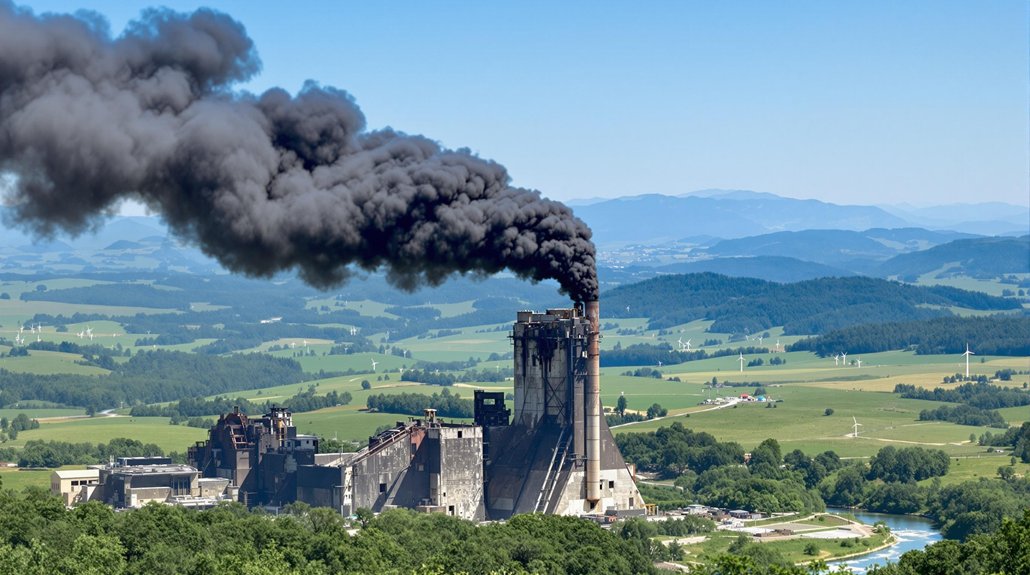Bosnia and Herzegovina remains stubbornly tethered to coal, which generates 60% of its electricity. Aging fossil infrastructure persists despite the country’s impressive 2000 MW of untapped wind potential and abundant hydropower resources. Political resistance stems from coal-mining jobs and artificially low electricity prices. Meanwhile, EU carbon taxes loom and Paris Agreement obligations pile up. The irony? A potential green powerhouse chooses to stay dirty while the rest of Europe evolves.
While neighboring European countries rush toward renewable energy futures, the Federation of Bosnia and Herzegovina remains stubbornly tethered to its coal-dependent past. With coal fueling a whopping 60% of electricity generation, the country seems determined to keep its relationship with the dirtiest fossil fuel going strong. Who needs clean air anyway, right?
The situation is particularly frustrating given the Federation’s abundant green energy potential. We’re talking serious untapped resources here – 2000 MW of wind potential, mostly in western regions, plus significant hydropower capacity beyond the current 35% contribution. Solar and biomass? Barely touched. Geothermal? Practically invisible on the energy radar. The country is missing opportunities to leverage biomass resources, which are actually the most abundant renewable energy option available.
Bosnia’s renewable potential sits untapped while neighboring countries leap ahead—a clean energy gold mine collecting dust.
Meanwhile, the country’s fossil fuel infrastructure is literally crumbling. Coal plants are wheezing toward retirement in the next decade. Natural gas makes up a tiny 3% of supply, with a single import route from Russia that’s about as secure as a paper boat in a hurricane. The lack of gas storage facilities only makes matters worse. This dependence on fossil fuels accelerates biodiversity loss, which threatens both economic stability and public health in the region.
Political resistance to change is fierce. Coal mining employs thousands, making alteration politically explosive. Artificially low electricity prices mean nobody’s bothered about efficiency. The decentralized governance structure turns energy policy into a bureaucratic nightmare – imagine herding cats, but the cats all have veto power.
Despite signing up for ambitious targets – 43.6% renewables by 2030 and a 33.2% emissions reduction – progress moves at glacial pace. The current government continues to promote gasification as energy independence despite evidence from EU experiences showing gas import dependence creates vulnerability to price fluctuations. The grid infrastructure can’t handle large-scale renewable integration anyway. It’s like promising to host a marathon without building the track.
International pressure continues mounting. The EU’s potential carbon border tax threatens the country’s coal-based exports. Paris Agreement obligations loom large. Yet domestic expertise in advanced renewable technologies remains limited.
The irony? BiH could be an energy powerhouse. Instead, it’s stuck in an energy time warp, watching as the renewable revolution happens elsewhere. All that green potential, wasted. What a shame.









